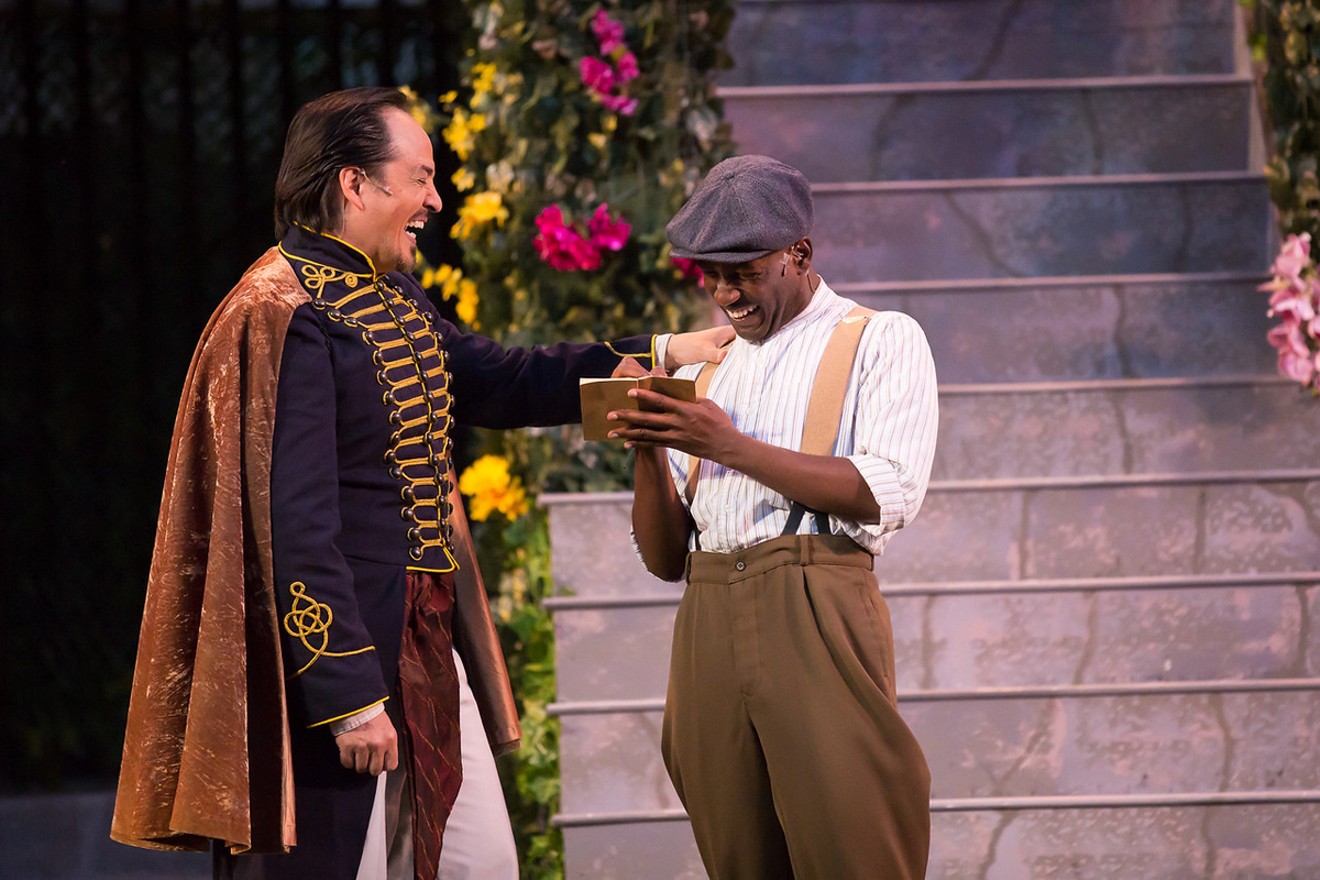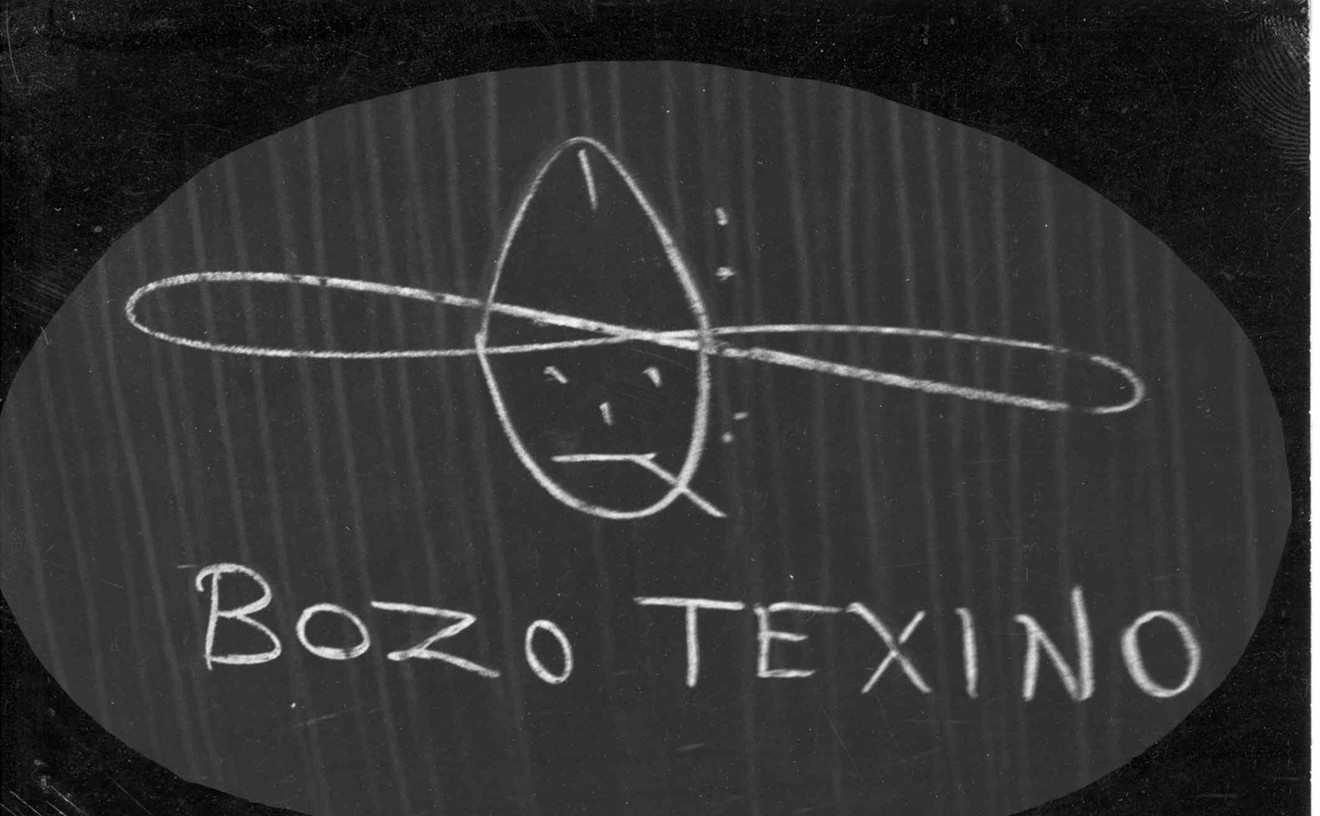No pelting rain. No late-night sweep of cold air. No sirens or cacophonous traffic sounds from nearby Broadway. It was a perfect night for Love’s Labour’s Lost, the first offering in the Colorado Shakespeare Festival’s 61st season at the University of Colorado Boulder. But this production isn’t perfect.
Now that Timothy Orr is in his fifth year as CSF producing artistic director, the roster has shifted a bit from the traditional lineup: Only two full Shakespeare productions instead of three — this and Richard III, though there will be a single performance of Edward III. The festival will also mount Edmond Rostand’s Cyrano de Bergerac and George S. Kaufman’s You Can’t Take It With You.
I have read Love’s Labour’s Lost, seen it on stage, and viewed Kenneth Branagh’s film. I am generally comfortable with Shakespeare’s language. But as I watched this show, some crucial segments of the plot passed me by. I knew this was a play about four young noblemen — headed by Ferdinand, King of Navarre — who swore to devote themselves to a life of study for three years, renouncing comfort and, most important, the company of women, a decision that would soon be challenged by the arrival of the beautiful Princess of France with her three equally beautiful handmaidens. I knew that one of those noblemen, Berowne, was pretty iffy on the celibacy idea from the beginning, and perhaps already half in love with one of the handmaidens, Rosaline. Rosaline, you may remember, is also the name of Romeo’s first love, instantly forgotten when he catches sight of Juliet, and Berowne and Rosaline also seem early models for Beatrice and Benedick in Much Ado About Nothing, the dueling couple who can’t stop insulting each other because they’re terrified of the love suppressed beneath those insults. I knew the men’s resolve would falter and the women would give them a hard time, and I had vague memories of masked deception at a dance — again, somewhat like the ball in Much Ado.
I should have re-read the text before going, though. Because when it came to the secondary plot featuring the comic characters, I couldn’t for the life of me remember who Costard was — though Michael Bouchard plays him with perfect timing and turns in the funniest performance of the evening — or make sense of a word that pedantic scholar Holofernes uttered. I didn’t know why Costard was going to prison or that pompous Don Adriano de Armado (given comic authority by Rafael Untalan) was involved with pretty country maid Jaquenetta (a charming Anastasia Davidson) until late in the action.
My confusion grew in large part because this play’s language is very dense in places and filled with puns and references that you need footnotes to understand. But this production didn’t help with that: Some of the actors were hamming like crazy and seemed more interested in their own bits and shticks than in the words they were tasked with speaking. A speech may be nonsensical as written, but the character giving that speech doesn’t think he’s speaking nonsense; he feels he’s making complete sense. So if the actor utters the words as if he means them instead of letting them skitter about in the air around his head, the audience should be able to pick out interesting nuggets of wit and moments of clarity. Or at least follow the damn plot.
Still, as directed by Brendon Fox, there’s a lot to like about this Love’s Labour’s Lost. It’s fun watching the women get the upper hand and wield it mercilessly. The tone is light, frothy and fun, and the show is animated by some good performances. In addition to Bouchard, Davidson and a generally convincing Untalan, Marco Robinson does a fine job of holding things together as the king, and I like Seth Dhonau’s Berowne, who, admittedly, is the most richly drawn character in the play. Dhonau is able to get past the endless quipping and griping to make his genuine longing for Rosaline clear. Unfortunately, although Brynn Tucker’s Rosaline is graceful and a fast, energetic talker, she doesn’t seem to give a fig for him. In fact, there’s very little electricity among the lovers in general, even though A.J. Voliton and David Derringer are solid in the roles of the remaining two lords, and Desiree Mee Jung is a lovely, dignified Princess.
It’s tough work to balance the tone of this play, giving full weight to the jokes, both clever and scurrilous, while still allowing Shakespeare’s poetry, insight and moments of utter seriousness their due. On the whole, Fox succeeds...but not without some hard labor.
Love’s Labour’s Lost, presented by the Colorado Shakespeare Festival through August 8, University of Colorado Boulder, 303-492-8008, cupresents.org.
[
{
"name": "Air - MediumRectangle - Inline Content - Mobile Display Size",
"component": "12017618",
"insertPoint": "2",
"requiredCountToDisplay": "2"
},{
"name": "Editor Picks",
"component": "17242653",
"insertPoint": "4",
"requiredCountToDisplay": "1"
},{
"name": "Inline Links",
"component": "18838239",
"insertPoint": "8th",
"startingPoint": 8,
"requiredCountToDisplay": "7",
"maxInsertions": 25
},{
"name": "Air - MediumRectangle - Combo - Inline Content",
"component": "17261320",
"insertPoint": "8th",
"startingPoint": 8,
"requiredCountToDisplay": "7",
"maxInsertions": 25
},{
"name": "Inline Links",
"component": "18838239",
"insertPoint": "8th",
"startingPoint": 12,
"requiredCountToDisplay": "11",
"maxInsertions": 25
},{
"name": "Air - Leaderboard Tower - Combo - Inline Content",
"component": "17261321",
"insertPoint": "8th",
"startingPoint": 12,
"requiredCountToDisplay": "11",
"maxInsertions": 25
}
]












